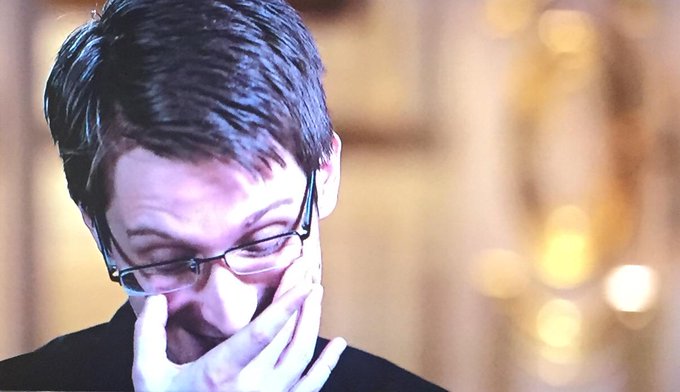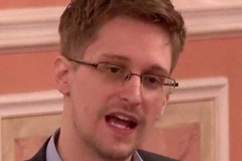In a surprise interview, former NSA employee and whistleblower Edward Snowden talked to John Oliver on HBO’s Last Week Tonight about the government’s surveillance programs.
Oliver started the show with a look at how Americans have talked about the Snowden leaks in the about two years since they were released. Then he revealed he had flown 10 hours to Moscow, Russia to interview Snowden. He remains in hiding there because he faces charges for leaking the secrets if he returns to the United States.
Snowden has talked publicly and to the media before, including in the Academy Award winning documentary Citizen Four, in a talk at South By Southwest and in an interview with NBC News last year. But Oliver took a comedic approach to the serious topic and attempted to simplify the complicated issue of NSA surveillance.
Before getting into more serious topics, Oliver joked with Snowden about him missing America. Snowden said he does miss his home and family. Oliver also asked if Snowden misses Hot Pockets (he does) and the entire state of Florida (Snowden remained silent on that question).
After the show aired Sunday night, Oliver tweeted:
Here’s what you need to know:
1. Oliver Showed Snowden That Many Americans Don’t Remember Him
Snowden said he was “initially terrified,” that the leaks would result in a three-day story that everyone would forget about. But he said it “felt like vindication,” when he saw the reaction to worldwide. He said, “if you ask the American people to make tough decisions, to confront tough issues, to think about hard problems, they’ll actually surprise you.”
Oliver said the “problem” is that he did ask some Americans and “boy did it surprise me.”
Oliver showed Snowden video of man-on-the-street interviews with New Yorkers, who either couldn’t remember who Snowden is or misremembered him, many confusing him with Wikileaks. Snowden, who leaked to the media thousands of classified documents he obtained while working as an NSA contractor in 2013, seemed upset by the video.
After they watched the video, Oliver said to him, “On the plus side it seems you can go home since no one knows who the f*** you are or what the f*** you did.”
Snowden said that “you can’t expect everybody to be uniformly informed,” and said he “did this to give the American people a chance to decide for themselves what type of government they want to have. That is a conversation that I think the American people deserve to decide.”
2. He Had Snowden Break Down NSA Surveillance Programs Using ‘Dick Pics’
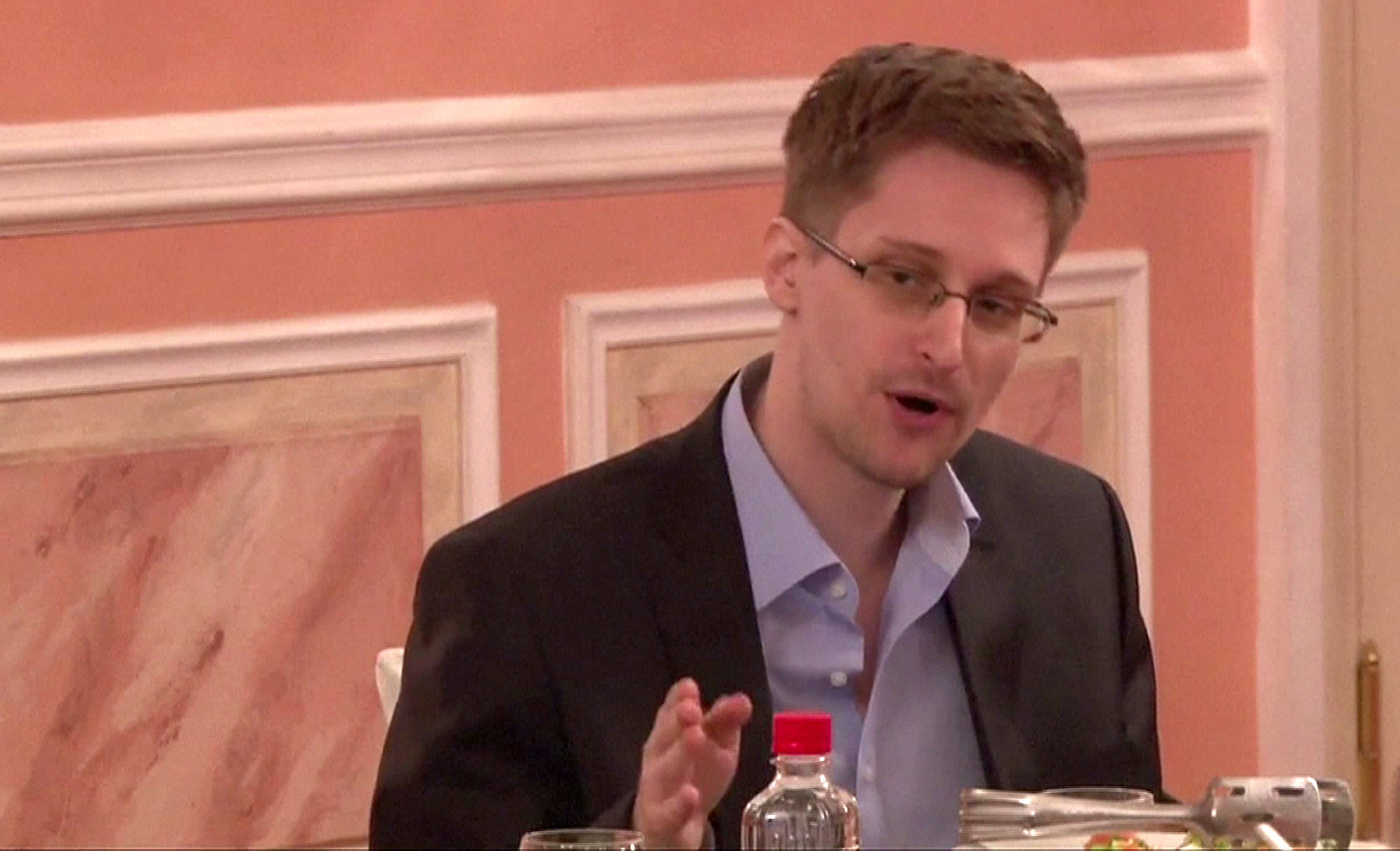
(Getty)
Oliver said the complications of the surveillance program make it difficult for Americans to have the conversation Snowden wants to have. As Snowden started talking about the technological aspects of the spying, Oliver said “this is the whole problem … I glaze over. It’s like the IT guy comes in and I’m like ‘oh s**t’ don’t teach me anything, I don’t want to learn.”
Snowden said it’s a “real challenge” to explain things that need years and years of technological understanding. Oliver brought up that Snowden had mentioned in the past that the NSA had passed around naked photos of people. Oliver then showed another video showing Americans reacting angrily to a “dick pic program” that allows the government to see naked, sexting photos. “I would want the dick pic program changed,” one interviewee says.
“This is the most visible line in the sand for people: ‘Can they see my dick?'” Oliver said.
After showing Snowden a picture of his own penis, Oliver asked the former NSA employee to go through “each NSA program and explain to me its capabilities in regards to that photograph.”
Snowden ran through the program using the “dick pic” as an example:
– On 702 surveillance, Snowden said, yes, the government could see Oliver’s dick: “The FISA amendments act of 2008, which section 702 falls under, allows the bulk collection of Internet communications that are one and foreign. … So if you have your email somewhere like Gmail, hosted on a server overseas or transferred overseas or at any time crosses over the borders of the United States, your junk ends up in a database. … Even if you send it to someone in the United States, your wholly domestic communication between you and your wife can go from New York to London and back and get caught in the database.”
– On Executive Order 12333: “EO12333 is what the NSA uses when the other authorities aren’t aggressive enough or aren’t catching as much as they’d like. … When you send your junk through Gmail, for example, that’s stored on Google’s servers. Google moves data from datacenter to datacenter, invisibly to you, without your knowledge. Your data could be moved outside the borders of the United States, temporarily, when you’re junk was passed by Gmail, the NSA got a copy of that.”
– On PRISM: “PRISM is how they pull your junk out of Google, with Google’s involvement. All the different PRISM partners, people like Yahoo and Facebook, Google, the government deputizes them to be sort of their little surveillance sheriff.”
– On Section 215 of the Patriot Act: “No. … But, they could probably tell who you’re sharing your junk pictures with, because they’re seeing who you’re texting with, who’re you’re calling with.”
Oliver said Americans would be “absolutely horrified,” if they understood this, to which Snowden replied, “I guess I never thought about putting it in the context of your junk.”
3. Snowden Said Americans Shouldn’t Change Their Behavior Because of the Spying
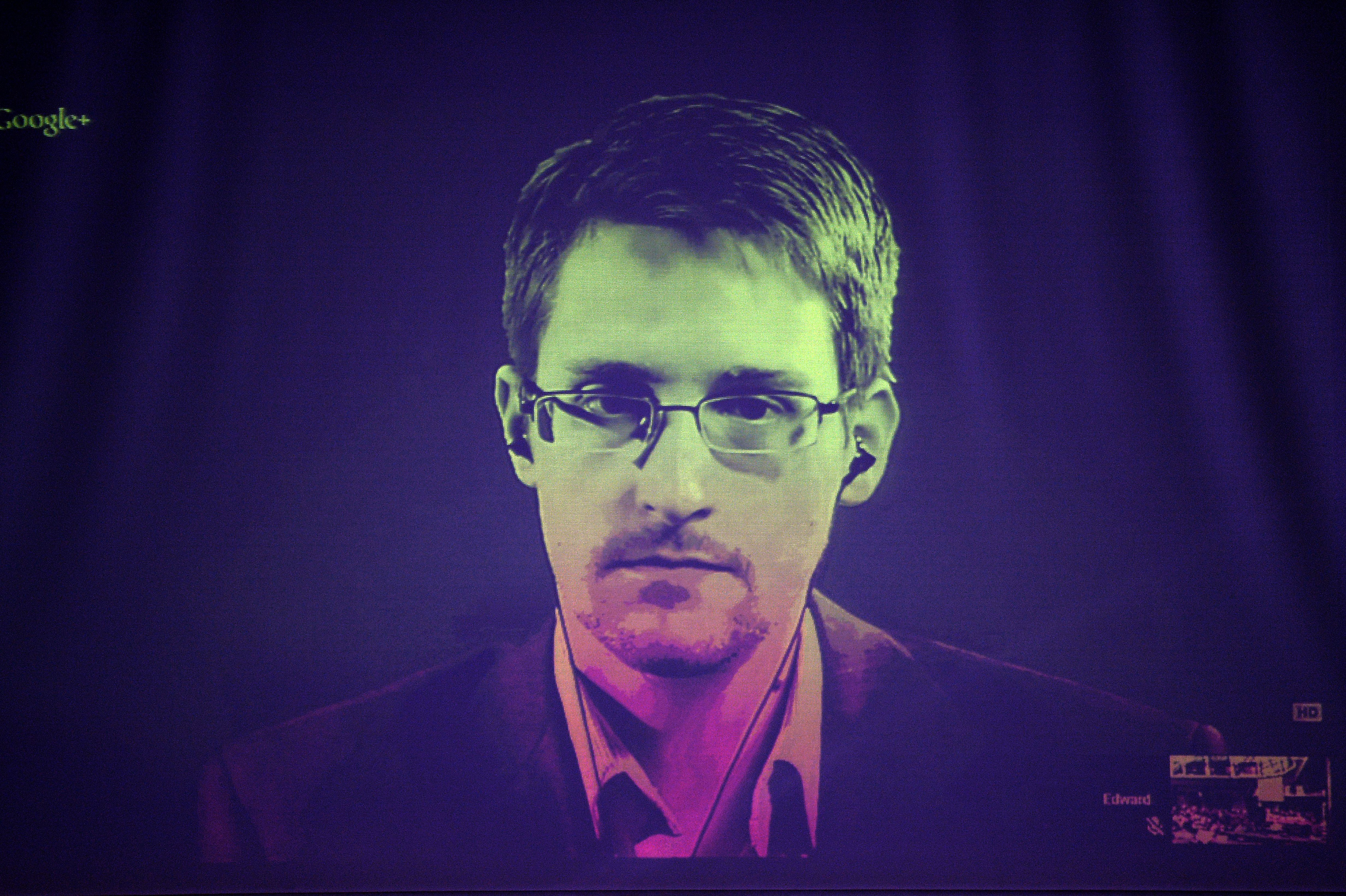
(Getty)
Oliver asked if a “good takeaway until we’ve sorted all this out is just ‘don’t take pictures of your dick. Just don’t do it anymore,'” Snowden replied:
No. If we do that. You shouldn’t change your behavior because a government agency somewhere is doing the wrong thing. If you sacrifice our values because we’re afraid, we don’t care about those values very much.
4. Snowden Said He ‘Evaluated’ All the Documents He Leaked
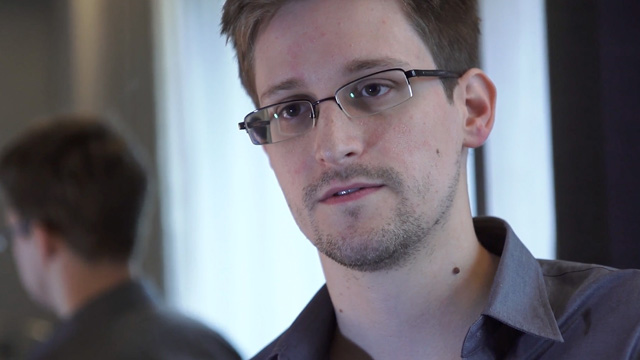
(Getty)
Oliver said many Americans do care about the adverse consequence of leaking the documents. In a tough line of questioning, Oliver asked Snowden if he read all the documents he handed over to journalists, and Snowden responded that he had “evaluated” all the documents he gave to them. When pressed again if he read every single document, Snowden said, “well, I do understand what I turned over.”
Oliver responded that there’s a “difference between understanding what’s in the documents and reading what’s in the documents. … When you’re handing over thousands of NSA documents, the last thing you want to do is read them.”
Snowden said, “I understand the concern. I think it’s fair to be concerned, ‘did this person do enough.'”
He said he turned over the documents to journalists to decide how to safely distribute the information. But Oliver pointed out that journalists have made mistakes in the release of documents, including when the New York Times published a slide that revealed the U.S. was spying on al Qaeda in Mosul. Snowden said “That is a problem,” and Oliver responded “that’s a f**k-up.”
Snowden said, “it is a f**kup, and those things do happen in reporting. In journalism, we have to accept that some mistakes will be made. This is a fundamental concept of liberty.”
Oliver responds, “you have to own that then. You’re giving documents with information you know could be harmful.” Snowden didn’t reply.
5. Oliver Thought the Interview Wasn’t Going to Happen
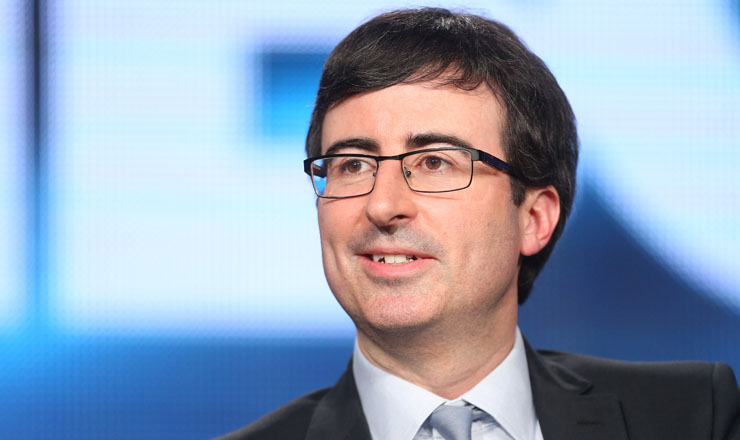
(Getty)
Snowden was late arriving to the interview, and in footage shown by Oliver, it’s clear he and his staff weren’t sure if the whistleblower was going to show up.
Oliver said he found out the location of the interview was across the street from the former home of the KGB spy agency and the current home of the Federal Security Service of the Russian Federation.
